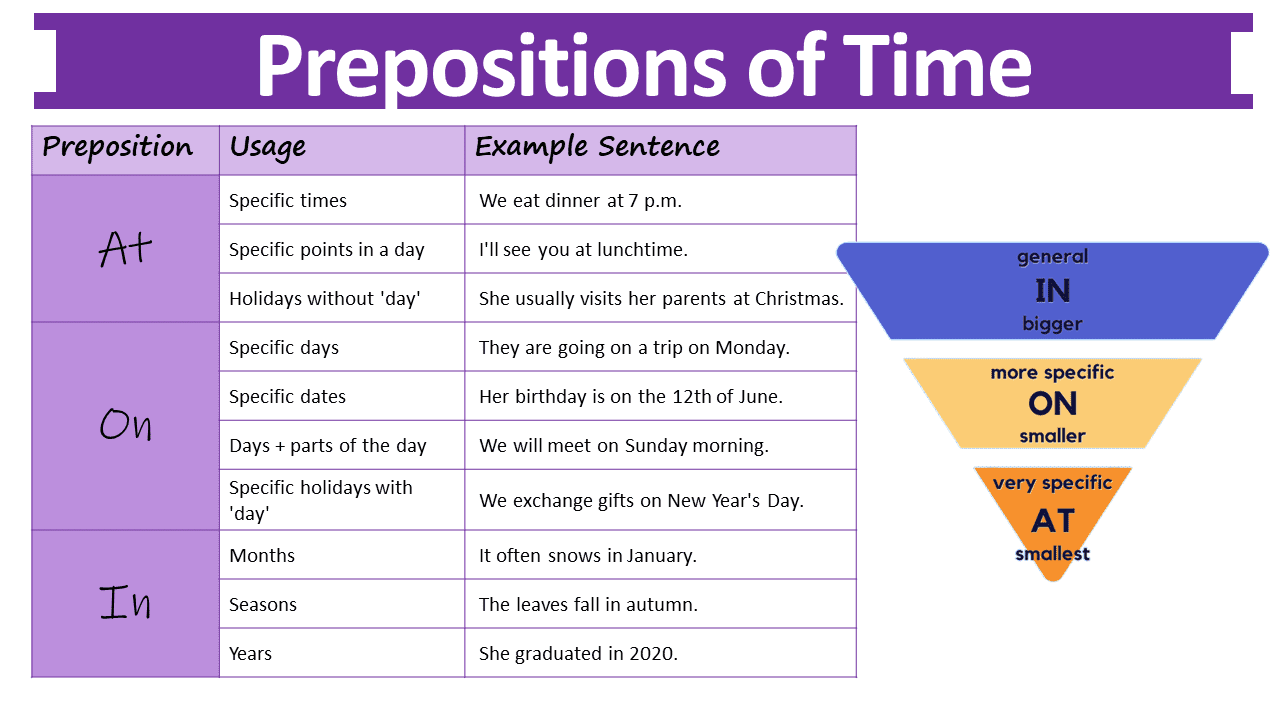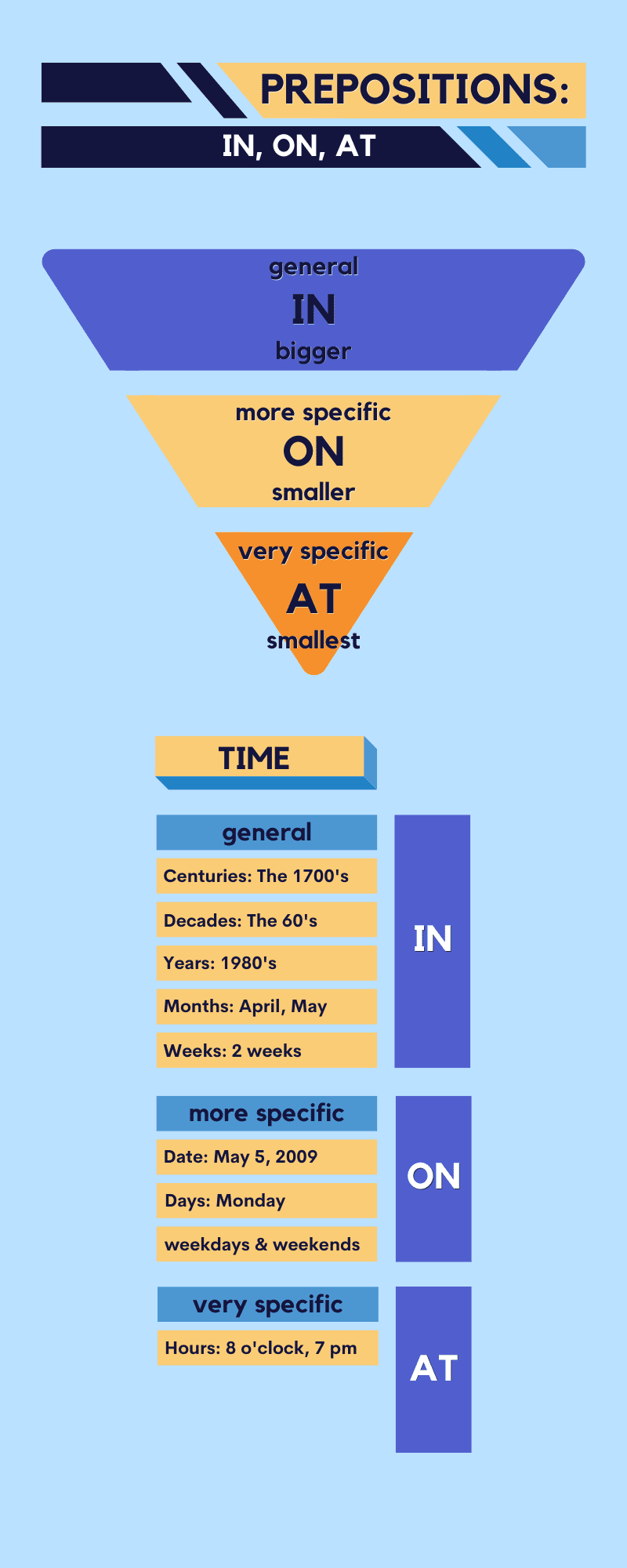In the vast landscape of English grammar, Prepositions of Time are valuable markers that help us locate events in time. These prepositions are primarily “at,” “on,” and “in.” They lend coherence to our discourse by providing critical temporal cues.
Prepositions of Time might seem simple, but their appropriate use can sometimes be tricky for beginners. So, let’s break them down with examples to better understand their application:
- At – We use “at” for specific times of the day. For example, “I usually wake up at 7 a.m.”
- On – “On” is used for specific days or dates. For example, “My birthday is on July 7.”
- In – “In” is used for months, years, seasons, and parts of the day (except for nighttime). For example, “I enjoy swimming in the summer.”
To summarize, here’s a simple chart to illustrate their usage:
| Preposition | Usage | Example Sentence |
|---|---|---|
| At | Specific times | “We eat dinner at 7 p.m.” |
| Specific points in a day | “I’ll see you at lunchtime.” | |
| Holidays without ‘day’ | “She usually visits her parents at Christmas.” | |
| On | Specific days | “They are going on a trip on Monday.” |
| Specific dates | “Her birthday is on the 12th of June.” | |
| Days + parts of the day | “We will meet on Sunday morning.” | |
| Specific holidays with ‘day’ | “We exchange gifts on New Year’s Day.” | |
| In | Months | “It often snows in January.” |
| Seasons | “The leaves fall in autumn.” | |
| Years | “She graduated in 2020.” | |
| Parts of the day (morning, afternoon, evening) | “I usually read in the evening.” | |
| Periods of time (decades, centuries) | “The novel was written in the 19th century.” |
Usage of Prepositon of Time with Collocations
Here’s a chart that breaks down the usage of the Prepositions of Time, “in,” “on,” and “at,” along with the common collocations with different time units:
| Preposition | Used with | Common Collocations |
|---|---|---|
| In | Years, Months, Seasons, Parts of the day (except for nighttime), Periods of time (decades, centuries) |
|
| On | Specific days or dates, Days + parts of the day, Specific holidays with ‘day’ |
|
| At | Specific times, Specific points in a day, Holidays without ‘day’ |
|
However, English being a versatile language, there are exceptions. For instance, we say “at night” and not “in the night,” or “on the weekend” and not “at the weekend” in American English.
Prepositions of Time Quiz
Here is a short quiz on Prepositions of Time. Try to fill in the blanks with the correct preposition – “at,” “on,” or “in.” The answers with explanations are provided at the end.
Quiz:
- I usually go to the gym _____ the morning.
- His birthday is _____ May.
- We have a meeting _____ 3 p.m.
- They are going on vacation _____ summer.
- She was born _____ a Monday.
- I enjoy reading books _____ the evening.
- The event is happening _____ the 15th of June.
- They usually visit their grandparents _____ Christmas.
Solutions:
- I usually go to the gym in the morning.
- Explanation: We use “in” for parts of the day (morning, afternoon, evening).
- His birthday is in May.
- Explanation: We use “in” for months.
- We have a meeting at 3 p.m.
- Explanation: We use “at” for specific times.
- They are going on vacation in summer.
- Explanation: We use “in” for seasons.
- She was born on a Monday.
- Explanation: We use “on” for specific days.
- I enjoy reading books in the evening.
- Explanation: We use “in” for parts of the day (morning, afternoon, evening).
- The event is happening on the 15th of June.
- Explanation: We use “on” for specific dates.
- They usually visit their grandparents at Christmas.
- Explanation: We use “at” for holidays without ‘day’ in their names.

